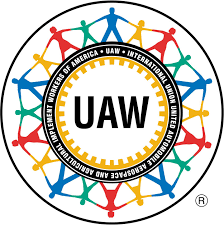New York, NY – A staggering number of hotel workers – over 10,000 in the U.S. – went on strike Labor Day this year. Why? Their issues range from a demand for higher pay, to more fair workloads, and a change back to pre-COVID-era service and staffing numbers.
UNITE HERE, the union which represents these workers, says hotel chains are “making more money than ever before,” and that those employed in these positions have to deal with “painful workloads” and “wages that can’t support their families.” They warned that staff in other cities were ready to join the strike, in places such as Baltimore, Providence, RI, Oakland, and New Haven.
The strikes will last two or three days in each city.
25 hotels in nine cities have been affected, including such iconic names such as the Hilton, Hyatt, and Marriot. In Baltimore, 200 hotel workers walked off the job. Boston, Greenwich CT, Honolulu, Kauai, San Diego, San Francisco, San Jose and Seattle hotels have also seen workers hit the picket line.
Gwen Mills, UNITE HERE’s international president, said, “hotel workers have to work two or sometimes three jobs in order to make ends meet.” One worker, Concepcion Marquez, says she works four part-time jobs to survive. She’s worked for 21 years at a Hilton location as well as a Marriot, and yet has no health insurance due to cutbacks in hours that would make her eligible.
The U.S. hotel industry made over $100 billion in gross operating profit in 2022, yet they cut staffing per room, forcing employees to work harder, eliminated daily housekeeping, and got rid of food and beverage options leading to lower tips.
The union is asking potential guests at any of these hotels with workers on strike to find alternative establishments to patronize, until a new contract is secured.
It’s not surprising that the union is calling out the industry for using the pandemic to institute cutbacks that were never restored. It’s just another way to undercut a decent, yet still difficult, way to survive.
And, Mills noted, hospitality work is “overall undervalued, and it’s not a coincidence that it’s disproportionately women and people of color doing the work.”





